Two students from the University of Michigan-Shanghai Jiao Tong University Joint Institute (UM-SJTU JI, JI hereafter) have been invited to represent China in a global hackathon competition held in Germany. Nuocheng Ji, a Class of 2024 undergraduate student, and Yueyuan Li, a Class of 2020 alumna, distinguished themselves in multiple selection rounds, securing a spot in the 2023 SICK Hackathon Challenge competition attended by 108 contestants from 22 countries in October.
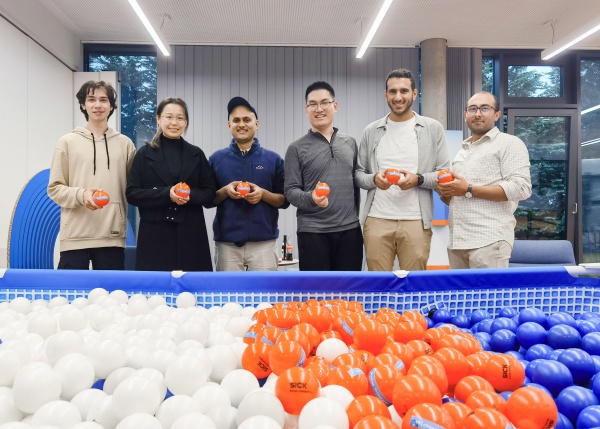
Nuocheng Ji (third from right) and Yueyuan Li (second from left) take photo with teammates.
The SICK hackathon competition themed “Hack your IoT solution in the world of industrial automation” features five main challenge categories: “MAKE IT MOVE,” “MAKE IT EASY,” “MAKE IT VISIBLE,” “MAKE IT GREEN,” and “MAKE IT SAFE.” Participating teams have the flexibility to select one or more challenge directions. A total of 21 teams, comprised of all contestants, collaboratively engage in a 48-hour intensive session encompassing brainstorming, technical development, rapid iteration, and prototype creation. The culmination of their efforts takes the form of a 5-minute project presentation, during which teams from around the world unveil their product concepts and showcase working prototypes to a global audience.
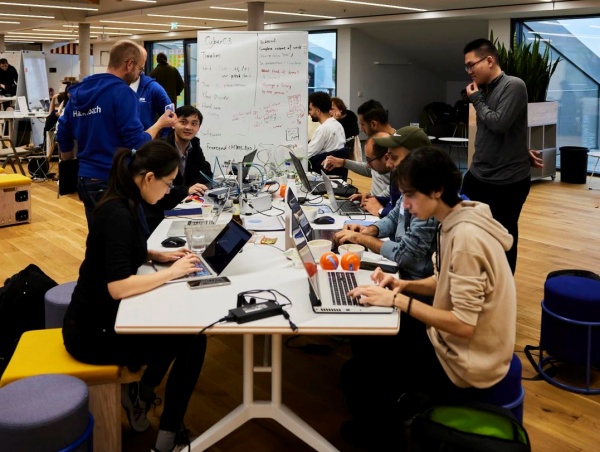
Participants work on team projects during the competition.
The two JI students participated in the competition with a team working on the project titled “AI-driven Machine Monitoring & Diagnostic Assistant” . Focused on the real-world logistics system and hardware at the SICK factory, the team is developing a user-friendly and easily operated intelligent conversational robot, in a bid to enhance the factory’s production and maintenance efficiency by providing real-time monitoring of operational status.
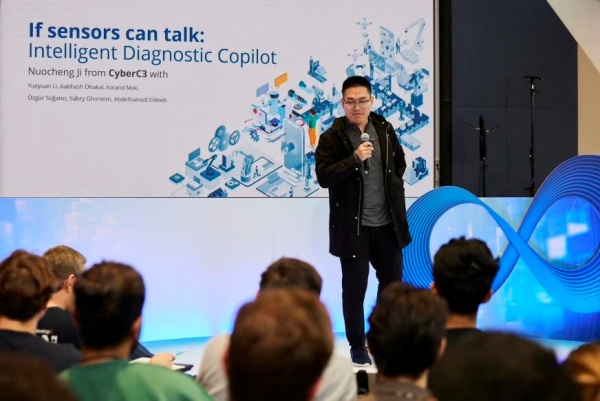
Nuocheng Ji delivers presentation of his team project.
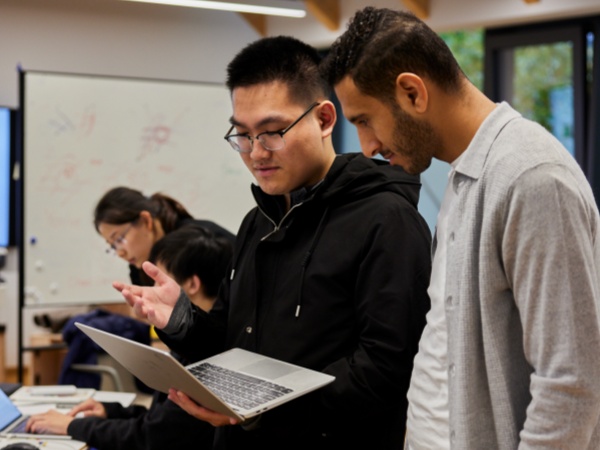 Speaking of the German hackathon experience, the JI senior student Nuocheng Ji majoring in Electrical and Computer Engineering said: “In the span of 48 hours, SICK provided us with access to nearly a hundred hardware and software options, along with unlimited food choices, fostering a conducive atmosphere for technological innovation. Additionally, I had the opportunity to connect with contestants from diverse countries such as Nepal, Turkey, and Egypt. Team members, each bringing unique perspectives from their respective countries, contributed varied inspirations—whether in technical development or refining the content for our final five-minute presentation.”
Speaking of the German hackathon experience, the JI senior student Nuocheng Ji majoring in Electrical and Computer Engineering said: “In the span of 48 hours, SICK provided us with access to nearly a hundred hardware and software options, along with unlimited food choices, fostering a conducive atmosphere for technological innovation. Additionally, I had the opportunity to connect with contestants from diverse countries such as Nepal, Turkey, and Egypt. Team members, each bringing unique perspectives from their respective countries, contributed varied inspirations—whether in technical development or refining the content for our final five-minute presentation.”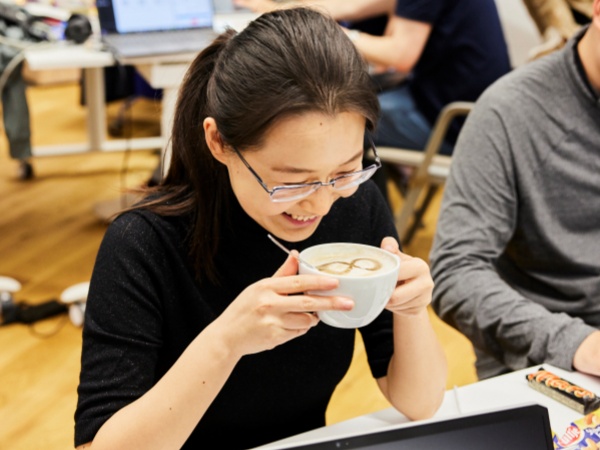
“Throughout my experiences, the opportunity to successfully complete a large-scale engineering project from start to finish has been rare. However, this time, I found myself compelled to undergo the entire process, from selecting a topic to on-site presentation, all within the tight timeframe of 48 hours—an experience filled with both challenges and satisfaction. This hackathon project proved to be a win-win situation for both enterprises and participants, thanks to the cleverly designed competition format. At times, a little brainstorming might unveil solutions beneficial to everyone involved,” said Yueyuan Li who is currently a doctoral student at SJTU School of Electronic, Information and Electrical Engineering under the guidance of Professor Ming Yang.





